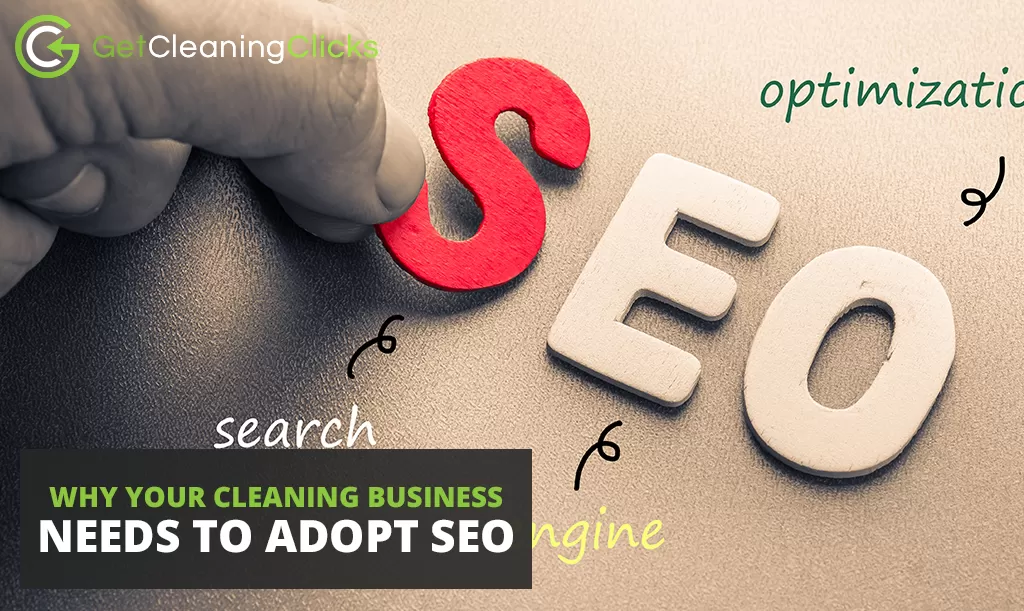How do you explain what is SEO marketing and how it works in a few words? Think of it as an effective, very customizable way to boost the traffic your cleaning company website receives by adjusting your content specifically to your target audience’s interests. It doesn’t depend on flashy ads or expensive PPC campaigns, and it actually gets better as time goes on because its effects snowball and your ranking improves as a result. It’s a no brainer, really, so why isn’t your business planning its strategy right now?
If you need any more convincing, the following guide goes over the basics and tells you in simple terms how SEO can benefit your business and the ways it can be applied to your website. We’ve made it as easy-to-read as possible, so your only questions at the end are where to go from here; it’s that simple! Finally, we break down a little of SEO’s two main components: Content and keywords. But let’s not spoil the whole thing, here’s how SEO marketing can help your business.
How do we define SEO?
SEO, which stands for Search Engine Optimization, is an umbrella term for the many tweaks and strategies, both big and small, that you can implement to make your online presence more attractive and effective at engaging customers as a result of their web searches. SEO functions organically, which means that its results do not depend on paying search engines to be the first result, and instead plays to their algorithms to perform better than other businesses.
Successful implementation of SEO techniques depends on knowing well the type of customer your catering to, and how they behave online. From the terms they use in their searches to the types of content they look for and much, much more, all of that information is the basis on which you’ll change different aspects of your website and the content you offer in it to make it more appealing to visitors. Being just one space below another related business in the first search result page can mean losing a customer.
It might seem like SEO is a high-stakes game, but the “right way” to do it is not set in stone, and the very success of it is not something that can be measured overnight. Changes usually start small, and depending on the direction they take you, the bigger ones follow, and their combined effects are what will make the difference if you keep up with them.
What are the goals of SEO? The following are a few that most experts will agree on:
-
- Make your content much more relevant for your target audience.
- Be the first result that your potential customers see on their search, on top of your competition.
- Boost your online presence and let people know about your business via related search results.
- Increase organic traffic to your website with more and better-qualified customers.
- Edit your website so it’s much more user-friendly and it leads your visitors towards making business with you.
Content and keywords
While there are plenty of steps to set up an effective SEO strategy, content is the lifeblood of the whole system, so you should never forget the big picture when focusing on the finer details. What’s the big picture, you ask? Quality content that your visitors enjoy reading, of course! The current approach to quality SEO is to create quality content that’s compatible with your keywords, and not to build content around the keywords.
But what are the keywords? In SEO, they’re words or whole phrases that people use to search for answers on the internet, the so-called “search queries.” By adding them as seamlessly and closely as possible to your content — from the descriptions in your websites to your blogs, and even on videos — then it will be one of the first results people will see come up on their device, and that way are more likely to visit you.
There are pages and pages of information we could write about the importance of keywords, but the main thing to get from this is that striking the right balance of relevant keywords and quality content is a great part of what makes SEO a successful and constantly evolving way of attracting customers online.
How important is SEO for a cleaning business?
Maid services and professional cleaning companies are both in a heavily competed industry, and each little push you can get towards getting more qualified, long-lasting customers helps a lot. Luckily, the push that an effective SEO strategy can give to your business is not small; it can put you on top of the competition if you’re smart about it, and you don’t let it fall to the wayside.
No matter how many billions of dollars are invested in advertising, social media and other methods of traffic generation every year, the bulk of it all comes from search engines, while savvy and inexperienced users will both perceive them more positively than paid advertising, therefore getting more clicks, and this is true for mobile and desktop alike.
It’s also the only marketing strategy that gets better results as time goes on, contrary to paid advertisements that need a constant, uninterrupted stream of revenue to perform well at all. With the right tweaks and attention, good content with the right keywords can give out increasingly good results that snowball over time and continue ranking high on web search results.
Perhaps most important of all is the fact that search engines approve and even encourage good SEO, including Google since their algorithms grow more complex every day but still need help offering smarter, cleaner results. Good practices will net you a high place every single time a qualified customer searches for one of your keywords, and search engines will help you get those results.
Thanks to the plenty of resources available online (including the search engine optimization that Google itself offers) you can perform some of the basic functions of SEO yourself, but a few steps down the line, or whenever you think it’s necessary to do some harder tasks, you might prefer the guidance of an expert. A good SEO company with an intimate knowledge of the cleaning industry can save you time, money, and prevent your content from falling into the many wrong SEO techniques that can harm your site’s ranking. Don’t let all that hard work go to waste!

